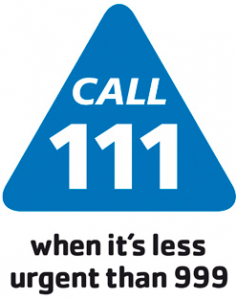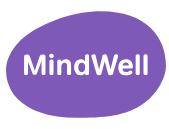Contact Us
Tel: 0113 843 4388
Email: leeds.mws@nhs.net
Our office opening hours are:
Monday, 8:00am - 4:00pm
Tuesday, 8:00am - 4:00pm
Wednesday, 8:00am - 4:00pm
Thursday, 8:00am - 4:00pm
Friday, 8:00am - 4:00pm
Please note we are closed on Bank Holidays.
Find Us
Burmantofts Health Centre, Cromwell Mount Leeds, LS9 7TA
Online Group Classes
We offer a range of free online courses and one-off classes that you teach practical methods to manage different mental health issues. Run by expert facilitators, the classes help you understand how you’re feeling and improve your wellbeing – and you can register directly online.
How does it work?
The sessions are run online using Microsoft Teams and are completely confidential.
Run by qualified psychological wellbeing practitioners, sessions are based on guided self-help cognitive behavioural therapy (CBT), a proven and effective method. You will learn how your thoughts, feelings, behaviours and physical symptoms impact your emotional wellbeing, and practise ways to improve your mental health.
Your camera and mic will be turned off during the session, but you can engage with other participants and the facilitators using the live chat at the side of the screen. You will receive an accompanying workbook to use during and in between sessions, and we encourage you to put your new techniques into practice outside of class.
If you feel you need a little further support when your classes end, we can arrange an appointment for you with one of our psychological wellbeing practitioners and we will assess whether you need further support.
Guidance on using Microsoft Teams is below.
Please note, your microphone and video will be disabled during your class.
What classes are available?
Stress control
This 6-week course focuses on helping you to reduce and better manage stress and anxiety. It teaches a variety of strategies including problem solving, challenging unhelpful thoughts, improving sleep, managing panic, improving lifestyle, reducing safety behaviours and avoidance. Two-hour classes, once a week – available daytime or evening.
Depression Recovery
This 6-week course helps you to identify how depression is maintained through negative a thoughts and avoidance behaviour. We teach CBT interventions to help you overcome depression including improving your sleep, tackling avoidance, recognising and challenging negative thinking and problem solving. Two-hour classes, once a week – available daytime or evening.
Workshops
In addition to our longer courses, we also offer single workshops, tailored to specific wellbeing issues such as anxiety, low mood or panic attacks.


Further information
Questionnaires
To receive your invite and workbook to each class, you have to complete a questionnaires each week, at least 2 hours prior to the session starting. As a mental health service, we are required to gather these are nationally set questionnaires. They look at very common symptoms of anxiety and low mood that we all experience form time to time. The questionnaires help us and yourself to monitor your progress throughout your treatment with us, and let us know if you benefit from the treatment and if you want require some more support. Please note that they do not indicate any mental illness.
Your Safety
It is very common to have distressing thoughts when feeling overwhelmed. One of the questions therefore asks about 'thoughts to harm yourself or end your life'. This is just as common as all of the other symptoms listed. We require you to answer this question, so please do not leave it blank.
We assume that all attendees are able to keep themselves safe and will not follow up on this question. However, if you would like to talk to somebody, please get in touch. Having these thoughts is different from making plans or having intentions to act on them, and if you feel you may be at risk you can find sources of support at Mindwell.
Data and Confidentiality
LMWS work together and observe the NHS Code of Practice on confidentiality. We use a single, secure, electronic patient records system which is approved nationally by NHS England. We are required to create a treatment record for all group attendees in order for us to report to NHS England on how many people are accessing our service.
The reports only include statistics, for example about the numbers of patients attending, or the degree of symptoms reported by attendees. No information that could reveal a patients identity is used in any of these reports and your record on our system is closed once the workshop is finished (unless you go on to, or are already receiving further treatment with us).
We may share your information with each other and your GP to support your direct healthcare, and we have implemented strong security measures to ensure your records remain private and confidential. For more information please download our leaflet.


